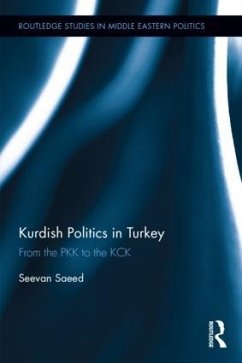In the aftermath of the collapse of the Ottoman Empire, the Kurds were promised their own state. However, several factors, including rapid changes in the political interests of the main powers in the region, meant that this dream never became a reality, and the land of the Kurds was divided. Amid a sense of a loss of identity, the Kurds started to fight for their social and political rights. 'Kurdish Politics in Turkey' argues that the Kurdish struggle during the twentieth century has largely been a failure, and that the emergence of the Unions of Communities in Kurdistan (KCK) has been a direct result of this. The book examines the success of the KCK and how it has transformed this Kurdish struggle in Turkey from a one-dimensional political movement, toa multi-dimensional social movement. The book argues that this transformation has brought about the notion of democratic autonomy as an alternative to the nation state model in Turkey. This 'new discourse' of multi-dimensional struggle is, in particular,compared to the old discourse of the Kurdistan Workers' Party (PKK), which came to light as a reaction to Turkish state policy towards the Kurds. 'Kurdish Politics in Turkey' offers the first comprehensive analysis of the Kurdish Struggle and the KCK within Turkey, and is therefore a unique and valuable resource for students and scholars of Middle East Politics, as well as those with an interest in Social Movements and the Kurdish struggles during the past few decades.

